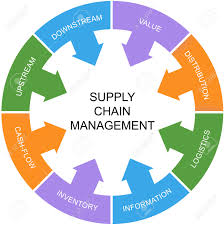Improving Supply Chain Management with Software

By definition, Supply Chain Management (SCM) is the oversight of materials, information, and finances as they move in a process from supplier to manufacturer to wholesaler to retailer to consumer. Supply chain management involves coordinating and integrating these flows both within and among companies.* SCM is becoming evermore important for small businesses as larger companies they compete with invest more in transportation, logistics, and inventory.
SCM is important because of the financial burden it can create for a company. It is very difficult to continuously operate at the intersection of supply and demand when there are frequent fluctuations. Fluctuations can be in the supply, demand, or the cost of obtaining and selling a product.
For example, when Ride-sharing became popular, the demand for Prius and Camry auto-parts for those vehicles increased. There were also frequent shortages in cities where there was a high demand, raising the selling price for those who still had parts in stock. Cost of production decreased because more parts were being produced and sold. Small businesses often have a high risk of failure if they don’t have a lean supply chain. When offering products some questions businesses may seek to solve include:
- Should my company make sub-components or contract them out?
- It is often cheaper to make sub-components in-house but there are many reasons why they should be contracted out: physical space needed may not be available, contractors may have a technical expertise in manufacturing specific items, tooling and training costs may be high, and quality and storage need to be managed.
- How many suppliers should my company have?
- Having more suppliers manufacturing a critical component makes sense. If one supplier is down there is another supplier that can ramp up. However, since each supplier has a smaller order, the cost of each component will likely be higher than the price of each component if purchasing everything from a single supplier.
- How much inventory should my company hold?
- Having too little inventory could lead to less sales and may deter potentially repeating customers from returning. Having too much inventory is a high risk if the competition drops the price or the product becomes obsolete.
There is a tremendous opportunity at the intersection of software and supply chain management. Specifically, small businesses could use help finding the best combinations of answers to the questions above using software. There are also opportunities for small businesses to have live inventory and offer delivery to local customers. As customer loyalty decreases with increasing suppliers, a well-managed supply chain along with great customer service can help small businesses keep prices competitive and continue growing.
